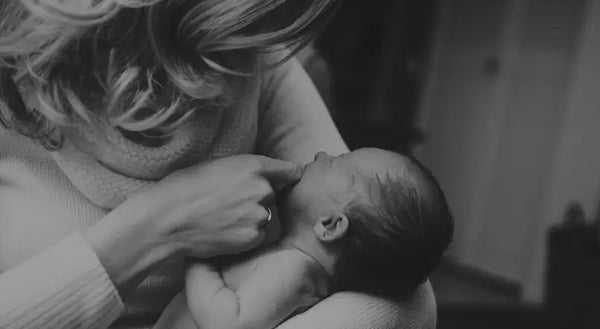World Breastfeeding Week 2020

As every year, the first week of August celebrates breastfeeding around the world.
Today, only 40% of newborns under the age of six months are reported to be breastfed worldwide.
To breastfeed or not to breastfeed is the question you are asking yourself. And it is not an easy choice. Therefore, we will try to give you some basic information to help you think about it.
Let's start with a short overview of breastfeeding and as there are 7 days in a week, we will cover 7 key points. Original, isn't it ?
N°1: World Health Organization recommends breastfeeding for at least the first 6 months of life
Beneficial for newborns :
- - Covers all needs (vitamins, mineral salts, trace elements, sugars, fats, proteins) ;
- - Protects against infections or diseases (gastroenteritis, ear infections, allergies...) ;
- - Promotes good digestion;
- - Faster psychomotor development.
Beneficial for mothers :
- - Accelerates contractions of the uterus, which returns to its place more quickly after childbirth;
- - Decreases the risk of ovarian and breast cancer as well as the risk of osteoporosis;
- - Helps you get back in shape;
- - Prolongs the emotional bond.
N°2 : White gold: giving your breast milk
Breast milk is very useful for preterm babies, to prevent some complications: infections, ulcerative enterocolitis, retinopathy.
« Any woman who breastfeeds and wants to give her milk can do so. A small bottle of 100 ml of milk per day for 15 days is enough. »
In order to be able to give milk, you simply have to fulfil 4 conditions: be in good health, non-smoker, have not had a blood transfusion and have a negative serology.
The lactarium provides all the necessary explanations and equipment: breast pump, bottles...
Excess milk is frozen and given to the lactarium teams.
« The milk collected is pasteurized and checked for bacteria, viruses and fraud. »
The milk is then distributed to the neonatalogy services on medical prescription.
N°3 : Some disadvantages
- - Breastfed babies eat more often because breast milk is digested more quickly;
- - For the same reasons, despite the soothing effect of prolactin, the breastfed baby often needs a meal during the night. As a result, the baby usually sleeps a little later at night;
- - Certain medications/treatments should be avoided during breastfeeding;
- - A baby may become fussy, have difficulty sleeping or develop gas: some foods may need to be limited: spices, citrus fruits, cabbage, coffee, canned tuna/fish, alcohol.
N°4: Milk is evolving!
Nature is well-made and the body adapts perfectly to baby's needs.
At the end of the feed, milk is fatty and acts as an anti-reflux stopper, which is why it is advisable to completely empty one breast before moving on to the other. Most of the time, 1 feed = 1 breast and we switch.
In addition to evolving during the feed, the milk evolves over the weeks. For the first few days, the milk is slightly laxative and helps Baby get rid of impurities in his tummy. Then it continues to evolve at 6 weeks, 3 months and 6 months to adapt to the needs of a growing baby.
N°5 : The "place" of the Dad
Most of the time, the choice of whether or not to breastfeed involves the question of the father's role during this experience. Will he be able to find his place? Won't he feel too excluded during the feeding?
The father has a real role during breastfeeding, different from that of the mother but just as important! Many women said they needed more support from the father during this time.
« Sweet words, gentle gestures, helping with logistics, getting the baby to drink, carrying and changing baby while mom goes back to sleep, etc., are important. »
It is also possible for the father not to miss feeding his child and giving the bottle thanks to the breast pump!
N°6 : Answers to preconceived ideas
- - "My breasts are too small. »
All women can breastfeed, regardless of their breast size, except in very special cases.
- - "It will damage my breasts. »
No, it's mostly pregnancy and fat accumulation that changes the breasts. Age and smoking are also linked to a decrease in skin elasticity.
- - "Breastfeeding makes you tired. »
No, a breastfeeding woman goes back to sleep more quickly in deep sleep after breastfeeding, thanks to the action of two hormones: prolactin and oxytocin.
- - "Breastfeeding hurts. »
On the first few days, the breasts can be very sensitive or even painful. But breastfeeding should not hurt. If this is the case after several days, you should not stay with your pain and consult a health professional.
N°7 : Resources to go further...
To learn more, we invite you to consult the VanillaMilk application, a useful platform for serene breastfeeding. Together we share the idea that breastfeeding is a personal and sometimes difficult choice. It is important to do it consciously, according to your own feelings, and not according to the surrounding pressure that may weigh on you. Listen to yourself, inform yourself, trust yourself, and everything will be fine !










